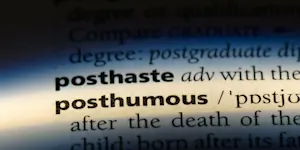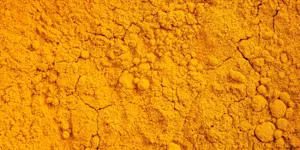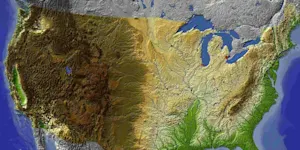What Makes This Word Tick
"Ensue" is one of those delightful words that feels both vintage and timeless. It pops up when things follow, develop, or result from a preceding event. It's the sort of word that leaves you hanging on for more, implying there's an interesting consequence just around the corner. Imagine the gripping moments in a story when you know something juicy is about to happen—that's when "ensue" steps in.
If Ensue Were a Person…
If ensue were a person, it might be that curious relative at family gatherings, comfortably seated, peering over their spectacles, and eagerly asking, "And then what happened?" They’re not nosy, just genuinely intrigued by the sequence of events and how they connect. This person appreciates the unfolding of life’s little dramas, delighting in the next chapter.
How This Word Has Changed Over Time
"Ensue" from the Old French "ensuir," hasn’t undergone dramatic changes over the ages. Its core essence of following naturally or logically continues to resonate. While today's headlines might favor punchier language, "ensue" holds its ground in classic storytelling and formal discourse.
Old Sayings and Proverbs That Use Ensue
While "ensue" isn't found in many age-old proverbs, it often lays in the fabric of stories behind them. Consider the essence of "what goes around comes around." Surely, it's another way of saying actions breed consequences, and yes, events may ensue.
Surprising Facts About Ensue
Despite its refined aura, "ensue" frequently sneaks into strategic boardroom dialogues and courtroom dramas. It is cherished for its ability to imply a chain of events without divulging the twists and turns that may follow. No wonder it’s a favorite in suspense novels and formal debates!
Out and About With This Word
You might overhear "ensue" in dramatic retellings of events at dinner parties or in the polished prose of a mystery novel. It elegantly fits in settings where events elegantly unfold and consequences are delicately implied, leaving you poised on the edge of your seat.
Pop Culture Moments Where Ensue Was Used
Though "ensue" might not headline pop culture chronicles, it often lurks in the dialogues of thriller films and TV dramas. Think of any show where characters take a pivotal action, leading to a suspenseful cliffhanger. The anticipation of what ensues is part of the appeal!
The Word in Literature
Ensue finds a cozy spot among classic literature, where it helps weave the threads of intricate plots. Its role is crucial in narratives unfolding over time, where one event seamlessly follows the last. From mysteries to epics, it's always been a trusty companion to the plot's gait.
Moments in History with Ensue
Picture historic peace treaties being signed, where leaders hoped that prosperity would ensue. Or the dramatic hours after a major announcement, waiting for the predicted events to follow. Ensue captures the spirit of expectation that defines historical turning points.
This Word Around the World
Though "ensue" in its English form might be unique, the concept is universal. In Spanish, "resultar" carries a similar connotation. Across cultures, the idea of events resulting from actions is a common thread in storytelling, proving the global nature of anticipation and consequence.
Where Does It Come From?
"Ensue" traces back to Middle English, with roots in Old French as "ensuir" and Latin "insequi." The Latin antecedents "in-" and "sequi" mean "to follow," perfectly capturing the trailing nature of the word. It’s a classic linguistics tale of old elements forming a contemporary gem.
How People Misuse This Word
People sometimes mistake "ensue" for more active verbs like "pursue" or "issue." It’s not about taking action but observing the sequence in the wake of action. It’s less about the chase and more about the trail left behind.
Words It’s Often Confused With
Pursue: While "ensue" is about naturally following events, "pursue" involves active seeking or chasing.
Ensure: A mix-up based on sound, but to "ensure" means to make sure something happens, rather than just observing the result of something else.
Issue: Can also follow actions, but implies something being sent out or released rather than naturally following.
Additional Synonyms and Antonyms
Synonyms for "ensue" include follow, result, and develop. Antonyms could be precede or predate, underscoring events that come first in sequence or time rather than after.
Want to Try It Out in a Sentence?
After the mayor announced the new city park, town meetings full of excitement and controversy ensued.
















